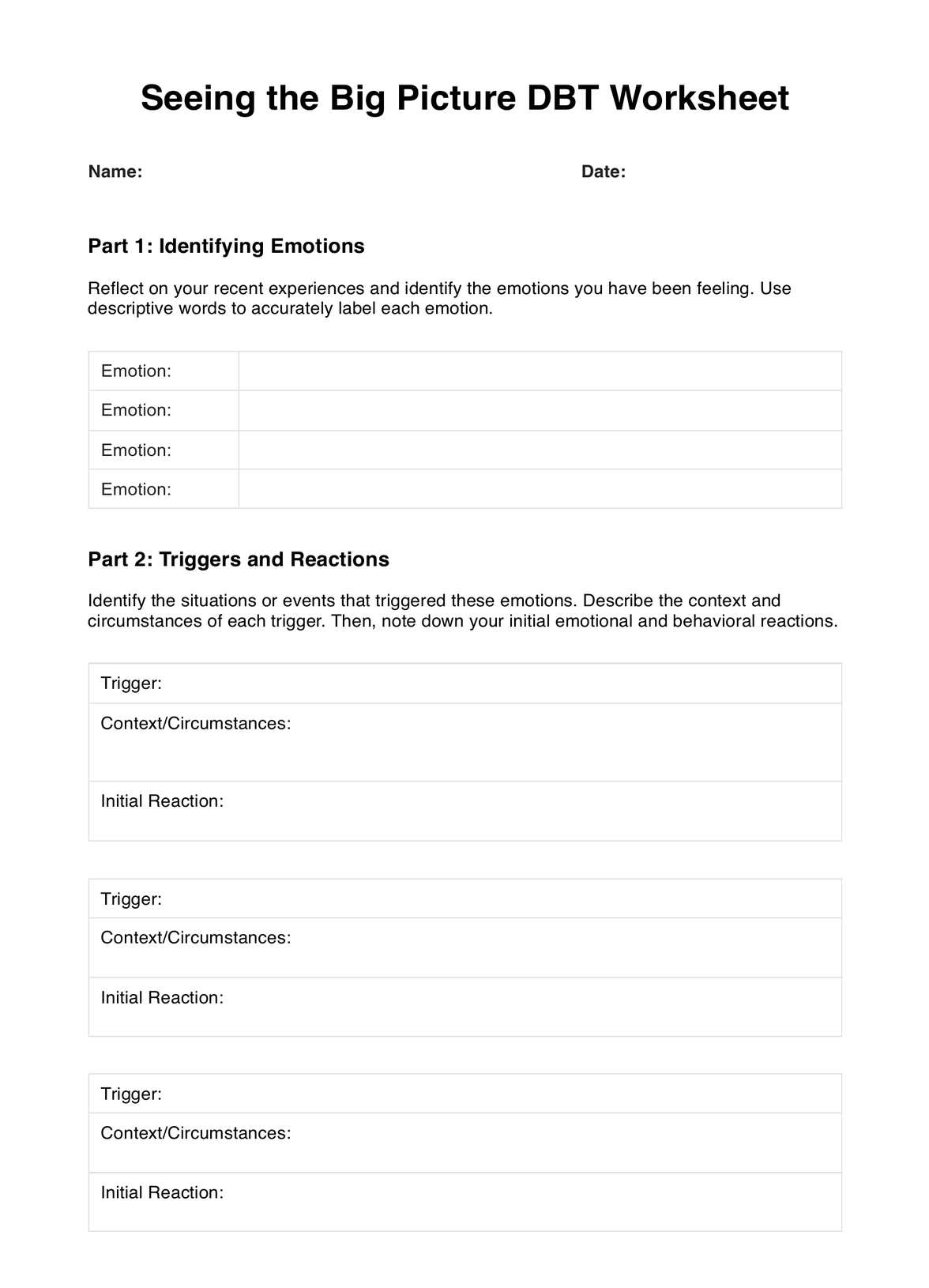Completion time varies, but expect around 20-30 minutes for a comprehensive exploration.

Seeing the Big Picture DBT Worksheet
Equip your practice with the Seeing the Big Picture DBT Worksheet. Empower clients to regulate emotions effectively. Free PDF example available.
Use Template
Seeing the Big Picture DBT Worksheet Template
Commonly asked questions
The worksheet offers insights into emotions, triggers, and practical strategies for effective emotional management.
Optimal times include when experiencing intense emotions, seeking to enhance emotional regulation, or fostering self-awareness.
EHR and practice management software
Get started for free
*No credit card required
Free
$0/usd
Unlimited clients
Telehealth
1GB of storage
Client portal text
Automated billing and online payments











